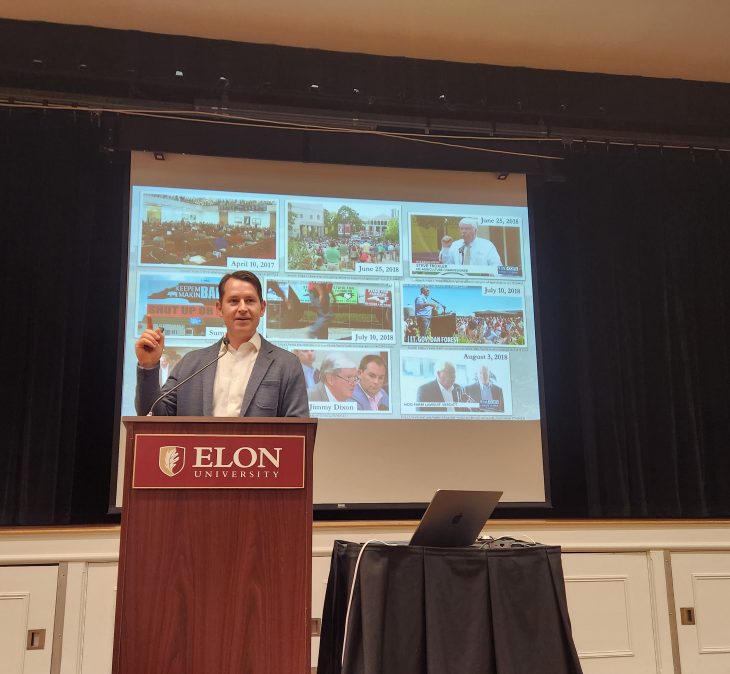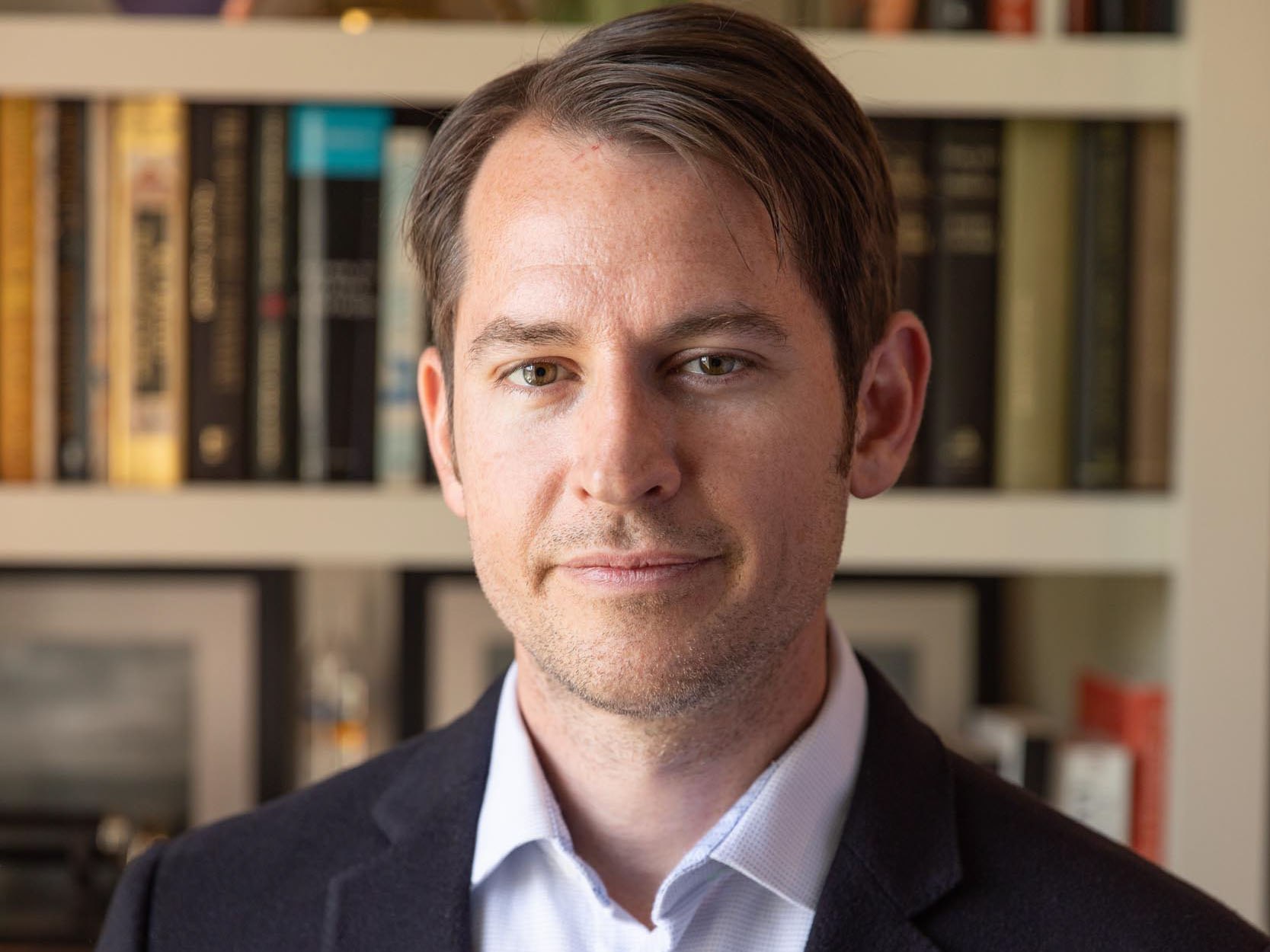Addison delivered the Campus Sustainability Week keynote address Tuesday, Oct. 15, in McKinnon Hall.
Attorney and author Corban Addison delivered the Campus Sustainability Week keynote address, making the case that the hidden costs of North Carolina’s hog farming industry are as vast as its economic reach.
Addison led an eastern North Carolina community’s successful legal fight against the industrial hog farming industry. His book “Wastelands” details the dangerous operations within, from unethical environmental practices to the politics involved in the industry. Addison spoke to around 100 people in McKinnon Hall on Tuesday, Oct. 15.

Addison described the typical hog farm: concrete-floored barns holding around 1,200 pigs each, with waste lagoons — large, man-made pits where the pigs’ waste is dumped. Pigs produce five times the waste of humans. When these lagoons reach capacity, the contents are sprayed onto nearby fields as fertilizer, and when the wind blows, nearby residents bear the brunt.
Addison shared personal stories from people living near these farms, including Jimmy Jacobs, a small tomato farmer who lives next to a hog operation. Jacobs told Addison that the smell is often so overpowering that he is forced to stay indoors, making it difficult to work. Addison also recounted the story of Elsie Herring, who returned to her childhood home after retiring only to find conditions drastically changed. Herring described hearing the sound of hog waste hitting her roof, likening it to rain.
The hog industry’s massive economic footprint, both locally and nationally, has led to political indifference, Addison said. When citizens raised concerns, politicians brushed them aside, and lawyers who tried to help often faced professional ruin. Addison recounted how national attention finally focused on the issue after Hurricane Floyd, when waste lagoons flooded, contaminating waterways and drowning pigs. The public outcry forced the government to fine Smithfield Foods, the largest hog farming company, $25 million to fund research into solutions. Yet, a decade of government and media silence followed.
That didn’t change until attorney Mona Lisa Wallace and local hog farmer Tom Butler took the issue to court. Addison called their victory against a deeply entrenched industry a “remarkable David vs. Goliath story.”
Addison concluded his address by urging the audience to take action, sharing how his own family is involved in the fight for change and encouraging the audience to join the movement.
“There is a way to save our food system,” he said. “There is a way to clean up the mess. But it’s going to take political will.”



